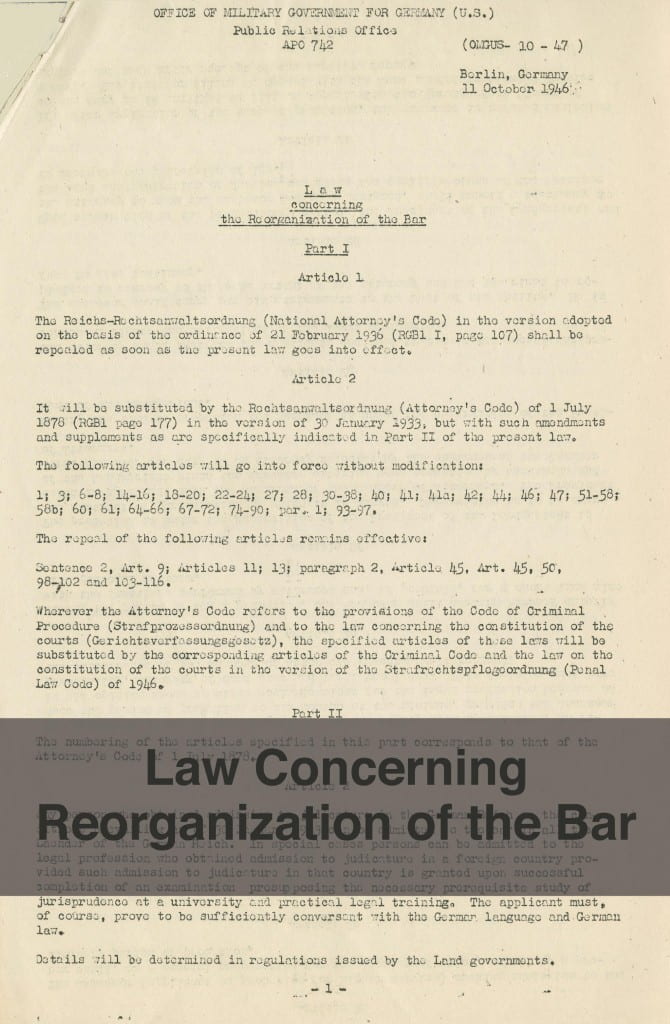 Loewenstein began writing drafts on the reorganization of the bar in November 1945. A central conflict in the discussions surrounding this law involved the readmission of former Nazis to the bar. Loewenstein believed that it was not possible to permanently block former members of the Nazi Party from rejoining the bar. Many German lawyers had to join the Nazi Party to keep their practices. By 1945, too many lawyers were in the Nazi Party, creating a dearth of lawyers eligible for public life. By the time Loewenstein left Germany in the summer of 1946, the main part of the law had been completed, but the legal division was still working on various amendments.
Loewenstein began writing drafts on the reorganization of the bar in November 1945. A central conflict in the discussions surrounding this law involved the readmission of former Nazis to the bar. Loewenstein believed that it was not possible to permanently block former members of the Nazi Party from rejoining the bar. Many German lawyers had to join the Nazi Party to keep their practices. By 1945, too many lawyers were in the Nazi Party, creating a dearth of lawyers eligible for public life. By the time Loewenstein left Germany in the summer of 1946, the main part of the law had been completed, but the legal division was still working on various amendments.
The law concerning the reorganization of the bar repealed all changes made by the Nazis in 1933. All attorneys admitted to the bar before January 30th, 1933, were automatically readmitted. The most fervent Nazis were automatically ineligible. Before being admitted to the bar, all prospective lawyers had to register with the Chamber of Attorneys. Four members of this Chamber of Attorneys along with three judges from the Oberlandesgerichte (state courts) comprised the “High Court of Honor,” which represented the most powerful German legal body in the American zone. This court still answered to the Military Government’s Legal Division.
Box 31, Folder 1, Karl Loewenstein Collection, Amherst College Archives & Special Collections.
